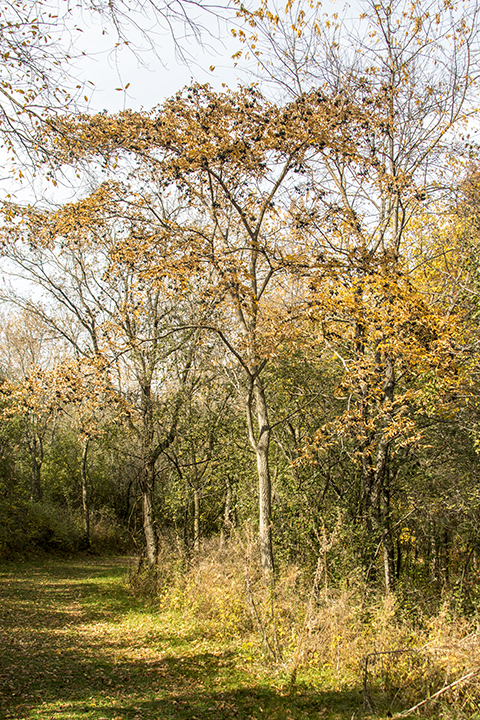Rare in Minnesota, Amur corktree (Phellodendron amurense) is an east Asian tree that was introduced into North America around 1856 and was planted as an ornamental. By 1933 it had become naturalized in the forests of New York. It is now considered a pest tree in New England. When allowed to become established it can create dense stands consisting of a large number of small trees that crowd out native species. It produces massive amounts of berry-like fruits which remain on the tree into early winter. Seeds are spread by American Robins and other birds. It is reported to be invasive in scattered locations in Illinois, Maryland, Massachusetts, New York, Pennsylvania, and Virginia. It is a prohibited species in Massachusetts. It is not listed in Minnesota, probably because of its rarity in the state. To date, it has been reported in just two locations in Minnesota: Lake Minnewashta County Park in Carver county, 9/28/2007; and Whitetail Woods Regional Park in Dakota County, 10/20/2015.
The compound leaves could be mistaken for walnut or ash but on this tree the fruits are clusters of black berries. The most distinguishing feature of Amur corktree, and the feature which gives the tree its common name, is the yellow, spongy or corky, inner bark. The outer bark is also more or less corky, and is distinctive enough in appearance to cause a passing naturalist to stop and investigate this unusual species.

